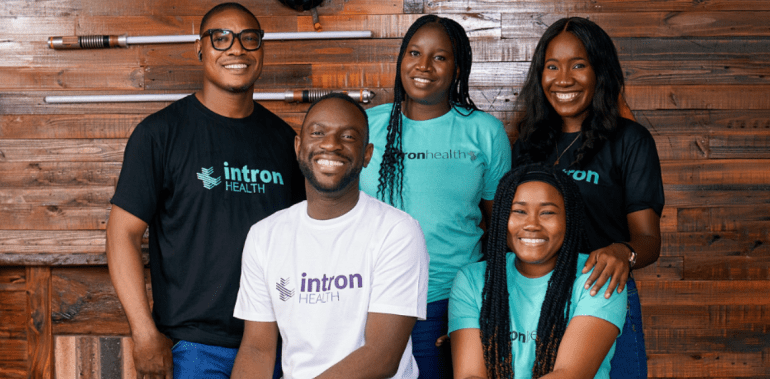- Intron Health is introducing a specialized speech recognition tool tailored for African accents.
- The startup’s database includes 3.5 million audio clips from 18,000 contributors across 29 countries and 288 accents.
- The tool, developed with a focus on medical terminology, shows superior performance for African accents.
- Founder Tobi Olatunji’s background as a Nigerian doctor and experience in tech companies influenced the tool’s creation.
- Initially aimed at digitizing hospital operations through an Electronic Medical Record (EMR) system, adoption was slow due to physicians’ preference for handwriting.
- Intron Health’s speech recognition technology has been adopted in 30 hospitals across Kenya, Nigeria, and other countries.
- The tool has reduced radiology result wait times significantly, from 48 hours to 20 minutes at a major West African hospital.
- The startup recently raised $1.6 million in pre-seed funding and plans to enhance its technology with noise cancellation, low bandwidth functionality, multi-speaker transcription, and text-to-speech capabilities.
- Intron Health is also involved in research on Large Language Models (LLMs) with partners like Google Research and the Bill & Melinda Gates Foundation to ensure culturally relevant AI models.
Main AI News:
Voice recognition technology is becoming an integral part of modern life, yet significant gaps persist, especially for speakers of minority languages and those with strong accents or speech disorders. Intron Health, a startup led by Tobi Olatunji, aims to close this gap with its specialized speech recognition tool tailored for African accents.
Intron Health claims to possess Africa’s largest clinical speech database, featuring an advanced algorithm trained on 3.5 million audio clips—equivalent to 16,000 hours—from over 18,000 contributors across 29 countries and 288 accents. The tool’s development has primarily involved healthcare professionals, ensuring precise capture of medical terminology and accurate recognition of diverse accents. According to Olatunji, the tool’s baseline performance for African accents is superior to other available services, with notable growth in data from countries like Ghana, Uganda, and South Africa, setting the stage for further deployment.
Olatunji’s venture into health-tech was influenced by his experiences as a medical doctor in Nigeria, where he observed the inefficiencies in healthcare documentation, including excessive paperwork and cumbersome data tracking. These observations drove him to seek improvements in medical documentation processes, leading him to pursue advanced degrees in medical informatics and computer science in the U.S. He gained valuable experience working at tech firms like Enlitic, where he developed models to automate radiology text extraction, and Amazon Web Services, focusing on natural language processing for healthcare.
The initial goal of Intron Health, established in 2020, was to digitize hospital operations in Africa through an Electronic Medical Record (EMR) system. However, the adoption was slow as many physicians preferred handwriting to typing. This challenge prompted Olatunji to explore ways to enhance basic data entry tasks. After facing issues with third-party speech-to-text solutions, it became clear that existing tools were ineffective due to the complexities of African accents and medical terminology. This realization led to the creation of Intron Health’s bespoke speech recognition technology, which has been successfully integrated into 30 hospitals across five countries, including Kenya and Nigeria. Notably, the tool has significantly reduced radiology result wait times at one of West Africa’s largest hospitals from 48 hours to just 20 minutes.
Intron Health recently secured $1.6 million in pre-seed funding from investors including Microtraction, Plug and Play Ventures, Jaza Rift Ventures, and others. The company plans to advance its technology by enhancing noise cancellation, ensuring functionality in low bandwidth conditions, and enabling transcription of multi-speaker conversations. Future developments include integrating text-to-speech capabilities and intelligent systems for tasks such as prescriptions and lab tests, aimed at reducing errors and improving patient care.
The rise of generative AI startups like Intron Health reflects a broader trend in healthcare innovation. The global speech and voice recognition market is projected to reach $84.97 billion by 2032, according to Fortune Business Insights, highlighting the growing demand for advanced voice technologies. Intron Health is also making strides in speech research, partnering with Google Research, the Bill & Melinda Gates Foundation, and Digital Square to evaluate Large Language Models (LLMs) like OpenAI’s GPT-4o and Google’s Gemini across 15 countries. This research aims to ensure that culturally relevant and unbiased models are developed for African healthcare settings.
Conclusion:
Intron Health’s innovative speech recognition technology represents a significant advancement in addressing the needs of healthcare providers in Africa. By improving the accuracy and efficiency of medical documentation for diverse accents, the startup not only enhances healthcare delivery but also taps into a growing market. The projected expansion of the global voice recognition market underscores the increasing demand for specialized solutions. Intron Health’s efforts align with broader trends in generative AI, highlighting a shift towards more inclusive and culturally aware technology solutions in the healthcare sector.

